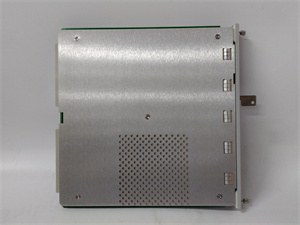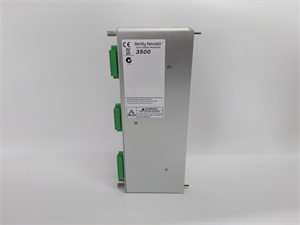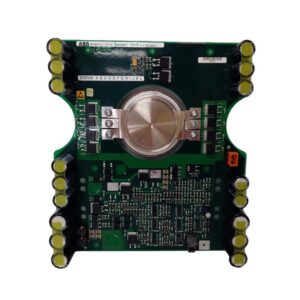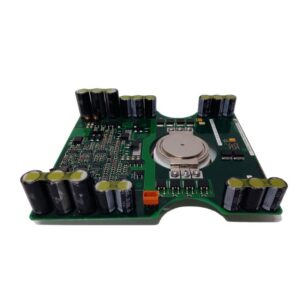Description
NI PXIE-8135 Product Description
Detailed parameter table
| Parameter name | Parameter value |
| Product model | PXIE-8135 |
| Manufacturer | NI |
| Product category | PXI Express Embedded Controller |
| Processor | Intel Core i7 (4-core, 8-thread) |
| Clock Speed | 2.5 GHz (up to 3.5 GHz with Turbo Boost) |
| RAM | 8 GB DDR4 (upgradable to 32 GB) |
| Storage | 500 GB SATA SSD |
| PXI Express Bus | x8 Gen 3 upstream link |
| Expansion Slots | 1x PCIe x4 (for MXI-Express), 1x mPCIe |
| Operating System | Windows 10 Enterprise (64-bit) |
| Networking | 2x Gigabit Ethernet (Intel i210), 802.11ac Wi-Fi, Bluetooth 4.2 |
| USB Ports | 4x USB 3.0 (2 front, 2 rear), 2x USB 2.0 (internal) |
| Display Output | HDMI, DisplayPort |
| Form Factor | 3U PXI Express module |
| Operating Temperature | 0 °C to 55 °C |
| Weight | 2.2 lb (1.0 kg) |
| Part Numbers | 782071-01 (Standard), 782071-02 (Extended temperature) |
| Software Compatibility | LabVIEW, LabWindows/CVI, TestStand, NI-DAQmx |

NI PXIE-8135
Product introduction
The NI PXIE-8135 is a high-performance embedded controller designed for PXI Express systems, serving as the processing core for automated test and measurement applications. As part of NI’s PXI Express controller lineup, this 3U module combines powerful computing capabilities with seamless integration into PXI Express chassis, delivering the performance needed for demanding test environments.
Equipped with an Intel Core i7 processor and 8 GB DDR4 RAM (upgradable to 32 GB), the PXIE-8135 handles complex test sequences and data processing tasks with ease. Its x8 Gen 3 PXI Express upstream link ensures high-speed communication with other PXI Express modules, minimizing latency in multi-instrument systems. Whether deployed in aerospace validation, semiconductor testing, or industrial automation, the PXIE-8135 provides a reliable, compact computing solution that integrates tightly with NI’s hardware and software ecosystem, enabling engineers to build efficient, scalable test systems.
Core advantages and technical highlights
Powerful Processing Performance: The NI PXIE-8135 features a 4-core, 8-thread Intel Core i7 processor with a base clock speed of 2.5 GHz (boostable to 3.5 GHz), delivering the computational power required for real-time data analysis and complex test algorithms. This performance is critical in applications like semiconductor wafer testing, where thousands of test points must be processed quickly to meet production throughput targets. The controller’s 8 GB DDR4 RAM (expandable to 32 GB) ensures smooth multitasking, even when running multiple test applications simultaneously.
High-Speed System Integration: With a x8 Gen 3 PXI Express upstream link, the PXIE-8135 achieves data transfer rates up to 8 GB/s, enabling fast communication with modular instruments, data acquisition modules, and switches in the PXI Express chassis. This high bandwidth reduces bottlenecks in data-intensive applications, such as radar signal processing or high-channel-count data logging, where large datasets must be transferred between modules and the controller in real time. The integrated PCIe x4 slot also supports MXI-Express expansion, allowing control of remote PXI Express chassis for distributed test systems.
Compact, Rugged Design: As a 3U PXI Express module, the PXIE-8135 saves space in the chassis compared to external controllers, reducing the overall footprint of test systems. Its rugged construction supports operation in temperatures from 0 °C to 55 °C (extended temperature version available), making it suitable for industrial environments and environmental test chambers. The inclusion of both wired and wireless networking (Gigabit Ethernet, 802.11ac Wi-Fi) ensures flexible connectivity to local networks or cloud-based data storage, facilitating remote monitoring and test data management.
Seamless Software Ecosystem: The PXIE-8135 integrates seamlessly with NI’s software tools, including LabVIEW for graphical programming, TestStand for test sequence management, and NI-DAQmx for data acquisition. This compatibility simplifies system development, allowing engineers to leverage pre-built drivers and libraries to reduce programming time. The controller runs Windows 10 Enterprise, providing support for both NI software and third-party applications, ensuring flexibility in test system design.
Typical application scenarios
In aerospace and defense test systems, the NI PXIE-8135 serves as the central controller for validating avionics components. It coordinates with PXI Express modules such as oscilloscopes, signal generators, and power supplies to execute complex test sequences, processing data from multiple instruments in real time to verify component performance under various conditions. The controller’s high-speed bus ensures synchronized measurements across modules, critical for testing time-sensitive systems like radar or communication equipment.
In semiconductor manufacturing, the PXIE-8135 powers automated test equipment (ATE) for integrated circuit (IC) testing. It processes test data from hundreds of channels simultaneously, analyzing results to determine IC functionality and sorting devices into pass/fail categories. The controller’s processing power enables rapid test execution, supporting high-volume production lines, while its rugged design ensures reliable operation in cleanroom environments.
In industrial automation, the PXIE-8135 integrates with PXI Express-based machine vision and motion control modules to build smart manufacturing systems. It processes image data from cameras to inspect product quality, coordinates motion controllers to adjust production line equipment, and logs data to networked databases for process optimization. The controller’s wireless connectivity allows plant managers to monitor test results and system health remotely, improving operational efficiency.

NI PXIE-8135
Related model recommendations
NI PXIE-8156: A higher-performance PXI Express controller with an Intel Core i9 processor and 16 GB RAM, offering an upgrade path from the PXIE-8135 for applications requiring maximum computational power, such as high-channel-count data acquisition or complex signal processing.
NI PXI-8106: A PXI (non-Express) controller compatible with legacy PXI systems. It shares software compatibility with the PXIE-8135 but uses a PXI bus, making it suitable for upgrading older test systems that don’t require PXI Express bandwidth.
NI PXIE-8880: A real-time controller with a deterministic processor, designed for time-critical applications where precise timing is essential. When paired with the PXIE-8135 in hybrid systems, it handles real-time control tasks while the PXIE-8135 manages data logging and user interfaces.
NI PXIE-1085: A 18-slot PXI Express chassis that works with the PXIE-8135 to build large-scale test systems. It provides the backplane infrastructure needed to connect multiple modular instruments, maximizing the controller’s ability to coordinate complex test sequences.
NI USB-8502: A USB-to-CAN/LIN interface module that complements the PXIE-8135 in automotive test systems. While the PXIE-8135 controls PXI Express instruments, the USB-8502 enables communication with vehicle networks, expanding the system’s connectivity to automotive ECUs.
Installation, commissioning and maintenance instructions
Installation preparation: Before installing the NI PXIE-8135, power off the PXI Express chassis and ensure it has an available slot in the controller position (typically slot 1). Verify the chassis firmware is up to date to ensure compatibility with the controller. Use anti-static precautions (wrist strap, grounded work surface) when handling the module to prevent damage to internal components. Prepare the operating system image (if customizing) and ensure all required NI software (drivers, application development tools) is downloaded for post-installation setup.
Commissioning: Insert the PXIE-8135 into the controller slot of the PXI Express chassis, ensuring proper seating in the backplane connector. Power on the chassis and follow the initial setup prompts to configure the operating system, network settings, and user accounts. Install NI software (e.g., LabVIEW, NI-DAQmx) using the NI Package Manager, selecting components relevant to your test system. Verify communication with other PXI Express modules via NI Measurement & Automation Explorer (MAX), running self-tests to confirm proper operation. Configure remote access (if needed) through the operating system’s network settings, ensuring secure connectivity for remote monitoring or control.
Maintenance suggestions: Regularly update the PXIE-8135‘s firmware and operating system patches to address security vulnerabilities and improve performance. Monitor storage usage on the 500 GB SSD, archiving test data to external storage or network drives to prevent full disk issues. Inspect the module’s cooling vents periodically for dust buildup, especially in industrial environments, and clean with compressed air if necessary to maintain proper thermal management. For extended temperature operation, ensure the chassis cooling system is functioning correctly to keep the controller within its operating temperature range. If system errors occur, check MAX for module-specific diagnostics and review event logs in Windows for troubleshooting clues.
Service and guarantee commitment
NI backs the PXIE-8135 with a 3-year warranty, covering manufacturing defects and ensuring prompt replacement or repair of faulty units. This extended warranty reflects NI’s confidence in the controller’s reliability, critical for long-term test system deployments.
Technical support is available through NI’s global service network, with specialists providing assistance via phone, email, and online portals. Support includes help with system configuration, software installation, and troubleshooting performance issues. NI also offers calibration and repair services for the PXIE-8135, with fast turnaround times to minimize test system downtime.
For customers requiring additional support, NI provides extended service agreements that include priority technical support, on-site service options, and software updates. These agreements ensure that the PXIE-8135 remains fully operational throughout its lifecycle, maximizing the return on investment for test systems in demanding industrial and research environments.






